Man City ‘target shock name to replace Pep Guardiola’ and Mikel Arteta could play key role in it happening
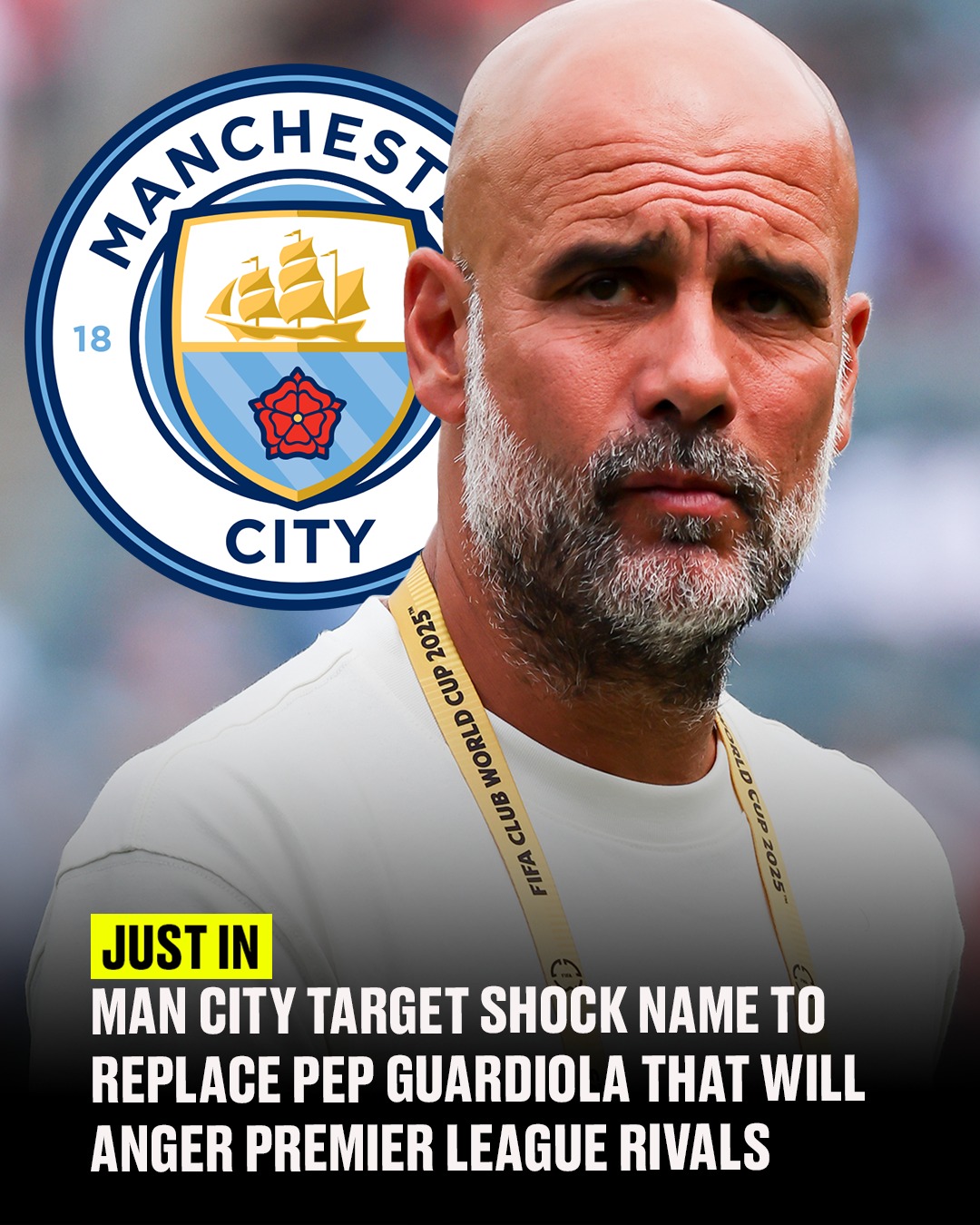
Manchester City find themselves at a crossroads that few could have anticipated just eighteen months ago. For the first time since 2021, the sky-blue half of Manchester enters a new Premier League campaign without the familiar weight of championship medals around their necks. Liverpool’s triumph under Arne Slot’s astute leadership has brought an unexpected end to City’s domestic dominance, forcing the club’s hierarchy to confront uncomfortable truths about the future and the inevitable reality that even the greatest dynasties must eventually plan for succession.
The 2024-25 season proved to be one of the most challenging in Pep Guardiola’s illustrious managerial career. What began as another quest for unprecedented success quickly transformed into a campaign defined by adversity, tactical adjustments, and ultimately, valuable lessons about vulnerability and resilience. The absence of Rodri, the Spanish maestro whose metronomic presence had become the heartbeat of City’s system, exposed cracks that even Guardiola’s tactical genius couldn’t entirely paper over.
City’s fall to third place behind both Liverpool and Arsenal represented more than just a statistical disappointment—it signaled a shift in the Premier League’s power dynamics that many had assumed would never come. The Champions League exit at the hands of Real Madrid, a team that has become synonymous with European nights of drama and destiny, served as another reminder that even the most methodical and well-prepared approaches cannot always overcome the unpredictable nature of knockout football. The FA Cup final defeat to Crystal Palace, perhaps the most surprising result of all, demonstrated that in football, as in life, there are no guaranteed outcomes.
Guardiola’s Commitment Amidst Uncertainty
Despite the turbulence that defined much of the campaign, Pep Guardiola’s decision to commit his future to Manchester City through a contract extension until June 2027 sent shockwaves through the football world. The announcement in November 2024 came at a time when many expected the Catalan master to announce his departure, having previously spoken about his desire to manage a national team and his concerns about avoiding stagnation in any single role.
Guardiola’s candid admission that he had seriously considered ending his Manchester City tenure revealed the internal struggle that even the most successful managers face. The pressure of maintaining excellence at the highest level, combined with the emotional and physical demands of managing elite athletes in an increasingly scrutinized environment, takes its toll on even the most dedicated professionals. His decision to remain, however, demonstrated not just loyalty to the project he had helped build, but also recognition that the work was far from complete.
The two-year extension represents more than just a contractual commitment; it embodies Guardiola’s determination to restore City to their accustomed position at the summit of English and European football. It also provides the club’s ownership and executive leadership with a crucial window to identify, evaluate, and potentially begin grooming his eventual successor. The challenge of replacing a manager of Guardiola’s caliber and achievements cannot be understated—it requires not just tactical acumen and leadership qualities, but also the ability to maintain the cultural and philosophical foundations that have made City’s recent success possible.
The Succession Challenge: Finding the Next Guardiola
The task of identifying Pep Guardiola’s successor represents one of the most complex challenges in modern football management. Manchester City’s success under the Spanish coach has been built on a foundation of tactical sophistication, technical excellence, and a relentless pursuit of perfection that extends far beyond mere results. Any potential replacement must not only understand these principles but also possess the personality and credentials to command respect from world-class players who have grown accustomed to working with one of football’s greatest minds.
The City Football Group’s approach to this succession planning reflects the same methodical preparation that has characterized their approach to player recruitment and development. According to Football Transfers, there is a growing acceptance at the Etihad Stadium that Guardiola’s time at the club might be drawing to a natural conclusion at the end of his extended deal and a smooth transition to their new manager is desired. This forward-thinking approach demonstrates the organization’s commitment to maintaining stability and continuity even as they prepare for significant change.
The criteria for Guardiola’s successor extend beyond traditional managerial qualifications. The successful candidate must possess an intimate understanding of positional play, the ability to develop and implement complex tactical systems, and the communication skills necessary to convey these concepts to players at the highest level. Additionally, they must demonstrate the emotional intelligence required to manage egos and personalities in a star-studded dressing room, while maintaining the demanding standards that have become synonymous with the Manchester City brand.
Cesc Fabregas: The Surprise Candidate
In this context, the emergence of Cesc Fabregas as a leading candidate to eventually succeed Guardiola represents both a logical evolution and a calculated risk. Fabregas, currently managing Como in Serie A, has been identified as a surprise candidate being seriously considered by Manchester City’s leadership team. The former Arsenal, Barcelona, and Chelsea midfielder brings a unique combination of playing experience, tactical understanding, and cultural familiarity that makes him an intriguing prospect for such a prestigious appointment.
Fabregas’s credentials as a player provide an essential foundation for his managerial aspirations. His time at Arsenal during Arsène Wenger’s reign exposed him to sophisticated tactical concepts and a commitment to technical excellence that would later influence his own coaching philosophy. The experience of playing for Barcelona during some of the club’s most successful years provided him with firsthand knowledge of the positional play principles that form the backbone of Guardiola’s approach to the game.
Perhaps most significantly, Fabregas’s playing career overlapped with Guardiola’s early managerial success at Barcelona, giving him direct insight into the methods and mentality that would later be successfully transplanted to Manchester City. His subsequent experiences in the Premier League with Chelsea added another layer of understanding about the specific demands and characteristics of English football, knowledge that would prove invaluable in managing City’s transition to a post-Guardiola era.
The Como Project: Proving Ground for Elite Management
Fabregas signed a four-year deal to become permanent head coach of Como after helping the team achieve promotion to Serie A, marking the beginning of what many observers believe could be a meteoric rise through the managerial ranks. Como’s return to Serie A after a 21-year absence has been a resounding success, with Fabregas guiding them to safety with four matches to spare. This achievement, while perhaps not grabbing headlines in the same way as victories at Europe’s elite clubs, demonstrates several qualities that Manchester City’s leadership values highly.
Under Fabregas’s guidance, Como achieved 15 wins, six draws, and four losses in 25 Serie B matches during their promotion campaign. These statistics tell only part of the story; the manner of Como’s success, characterized by attractive, possession-based football and tactical flexibility, has impressed observers throughout Italian football. The club’s ability to compete effectively despite limited resources compared to traditional Serie A powers demonstrates Fabregas’s capacity to maximize the potential of his available personnel.
The Como project has also provided Fabregas with valuable experience in squad building, player development, and the day-to-day challenges of management that extend far beyond tactical preparation. Managing a club with significant ambitions but limited resources has forced him to develop creativity and adaptability that would serve him well in navigating the different but equally complex challenges of managing Manchester City’s star-studded squad.
Tactical Philosophy and System Compatibility
One of the most compelling aspects of Fabregas’s candidacy lies in his tactical philosophy and its compatibility with the playing style that has defined Manchester City’s recent success. Observers believe Fabregas is more likely to use a 4-3-3 formation, drawing from his extensive playing experience in similar systems. This tactical preference aligns closely with Guardiola’s preferred approach, suggesting that a transition between the two managers could occur without the wholesale systemic changes that often accompany managerial appointments at elite clubs.
Fabregas’s understanding of positional play, developed through his experiences at Barcelona and refined during his playing career in various tactical systems, provides him with the foundational knowledge necessary to maintain and potentially evolve City’s playing style. His ability to interpret the game from different positions—having successfully operated as both a deep-lying playmaker and an advanced attacking midfielder—gives him unique insights into the movement patterns and decision-making processes that make City’s system so effective.
The Spanish coach’s emphasis on technical excellence and intelligent movement reflects values that have become deeply embedded in Manchester City’s organizational culture. His commitment to developing young players, evidenced by his work at Como, aligns with the club’s long-term strategic vision of combining immediate success with sustainable talent development through their academy system.
The Barcelona Connection: La Masia’s Lasting Influence
Perhaps no factor is more significant in Fabregas’s emergence as a potential Guardiola successor than their shared connection to Barcelona’s legendary La Masia academy. Both men were shaped by the same philosophical approach to football that emphasizes technical skill, tactical intelligence, and a commitment to playing the game in a specific, principled manner. This common foundation provides a level of understanding and continuity that would be difficult to replicate with managers from different footballing backgrounds.
Fabregas’s graduation from La Masia at a time when the academy was producing a generation of players who would go on to dominate world football provides him with credibility and insight that extends beyond mere tactical knowledge. His understanding of how to develop and implement the patient, possession-based approach that characterized Barcelona’s golden era makes him uniquely qualified to maintain the philosophical consistency that has been central to Manchester City’s recent success.
The influence of La Masia extends beyond playing style to encompass broader concepts of professionalism, preparation, and continuous improvement. These values, deeply ingrained in both Fabregas and Guardiola through their formative experiences at Barcelona, would facilitate a smoother transition than might be possible with a manager from a completely different footballing culture.
Premier League Experience: Understanding the Unique Demands
Fabregas’s extensive experience in the Premier League as a player provides him with invaluable insights into the specific demands and characteristics of English football. His eight-year tenure at Arsenal exposed him to the tactical evolution of the Premier League during a crucial period in the competition’s development, while his subsequent time at Chelsea provided him with experience of working within a winning culture at the highest level.
This Premier League background addresses one of the potential concerns about appointing a manager with limited experience in England’s top flight. Fabregas understands the physical demands of the Premier League season, the media scrutiny that accompanies high-profile appointments, and the cultural factors that can influence a manager’s success or failure in English football. His ability to communicate effectively in English and his familiarity with the expectations of English football media would be significant advantages in navigating the challenges of managing Manchester City.
Moreover, his relationships within English football, developed over nearly a decade as a player in the Premier League, could prove valuable in everything from player recruitment to building the external relationships that contribute to long-term success at the highest level.
The Development Timeline: Building Toward Future Success
Reports suggest that Roma’s Claudio Ranieri believes Fabregas will become one of Europe’s top coaches in a few years, reflecting the growing recognition of his potential within the football community. This endorsement from an experienced and respected figure in Italian football carries significant weight, particularly given Ranieri’s own success in developing young managers and identifying emerging talent in the coaching ranks.
The timeline of Fabregas’s development as a manager aligns well with Manchester City’s succession planning. With Guardiola committed through 2027, there remains sufficient time for Fabregas to continue developing his managerial skills and potentially gain additional experience that would further enhance his credentials for such a prestigious appointment. This period could include opportunities for him to work with Como in European competition, should they continue their upward trajectory, or potentially take on additional responsibilities that would further prepare him for the demands of managing at the highest level.
The gradual development approach also allows Manchester City to monitor Fabregas’s progress closely while maintaining flexibility in their succession planning. Should his development trajectory continue positively, he would become an increasingly attractive candidate; if unforeseen challenges arise, the club would have time to identify and develop alternative options.
Alternative Candidates and Competitive Considerations
While Fabregas has emerged as a leading candidate, Manchester City’s succession planning undoubtedly includes consideration of other potential appointments. The modern football landscape offers several managers with the credentials and experience necessary to succeed Guardiola, though each brings different advantages and potential concerns.
Former Guardiola assistants like Mikel Arteta at Arsenal or Domenec Torrent, who has gained experience managing in various leagues, represent options that would provide continuity with established City methods. However, their current commitments and the competitive landscape of elite management mean that securing their services might prove challenging or expensive.
International managers with distinguished records, such as Luis Enrique or Roberto Martinez, could bring fresh perspectives and proven ability to manage high-profile players. However, the transition from international to club management involves unique challenges, and their unfamiliarity with Manchester City’s specific culture and methods might require longer adaptation periods.
Reports indicate that Barcelona is also considering Fabregas as a potential candidate, highlighting the competitive nature of the market for promising young managers. This interest from his former club adds another layer of complexity to Manchester City’s succession planning, potentially requiring them to move decisively when the time comes to secure his services.
Financial and Contractual Considerations
The financial aspects of potentially appointing Fabregas as Guardiola’s successor involve several considerations that extend beyond his current compensation at Como. His four-year contract with Como, signed in July 2024, provides him with security and Como with protection against premature departure, but it also means that any approach from Manchester City would require negotiation and potentially significant compensation.
The financial investment in managerial appointments at Manchester City’s level extends far beyond salary considerations. The new manager would inherit responsibility for one of the most expensive squads in world football, with decisions about player retention, recruitment, and development carrying enormous financial implications. The club’s leadership must therefore be confident that any successor possesses not only tactical ability but also the judgment and decision-making skills necessary to manage these resources effectively.
Additionally, the commercial and reputational value of the managerial appointment cannot be underestimated. The success or failure of Guardiola’s successor will significantly impact Manchester City’s global brand, their ability to attract top players, and their commercial partnerships. These factors contribute to the complexity of the decision and the importance of thorough evaluation and preparation.
Cultural Integration and Leadership Qualities
Beyond tactical competence and experience, the success of any Guardiola successor will depend significantly on their ability to integrate into Manchester City’s existing culture while potentially evolving it to meet future challenges. Fabregas’s personality and leadership style, developed through his playing career and early managerial experiences, suggest strong compatibility with the club’s values and approach.
His reputation as an intelligent, articulate communicator would be essential in managing relationships with players, media, and the club’s various stakeholders. The ability to clearly convey complex tactical concepts while maintaining positive relationships with squad members of diverse backgrounds and personalities represents a crucial skill for any manager at this level.
Fabregas’s experience as a player in high-pressure situations, including major finals and crucial matches for club and country, provides him with insights into the mental and emotional aspects of elite competition that purely coaching-focused candidates might lack. This playing background could prove valuable in helping players navigate the unique pressures associated with playing for Manchester City.
Long-term Vision and Strategic Alignment
Manchester City’s interest in Fabregas reflects broader strategic considerations about the club’s long-term direction and objectives. The appointment of Guardiola’s successor represents an opportunity to either maintain the current approach or evolve it in response to changing dynamics in football tactics, player development, and competitive landscape.
Fabregas’s commitment to developing young players and his understanding of modern football’s emphasis on versatility and tactical flexibility align with trends that are likely to shape the game’s future. His ability to adapt his approach based on available personnel, demonstrated during his time at Como, suggests the kind of pragmatic flexibility that may be necessary as Manchester City navigates future challenges.
The club’s global expansion and commercial objectives also require a manager who can serve as an effective ambassador and representative of the Manchester City brand. Fabregas’s international profile, language abilities, and media experience position him well for these broader responsibilities that extend beyond pure football management.
Conclusion: A Bold Gamble with Significant Potential
The potential appointment of Cesc Fabregas as Pep Guardiola’s successor represents both a calculated risk and an exciting opportunity for Manchester City. While his managerial experience remains limited compared to some alternatives, his unique combination of playing background, tactical understanding, cultural compatibility, and demonstrated early success makes him a compelling candidate for one of football’s most prestigious positions.
The success of this potential appointment will ultimately depend on numerous factors, including Fabregas’s continued development as a manager, Manchester City’s ability to maintain their competitive standards during the transition, and the broader competitive landscape of English and European football. However, the club’s willingness to consider such an appointment reflects their confidence in their ability to identify and develop talent at all levels, from players to coaches.
As Guardiola continues his work to restore Manchester City to their accustomed position at the pinnacle of English football, the knowledge that succession planning is already underway provides additional stability and continuity to the project. Whether Fabregas ultimately proves to be the chosen successor or simply one of several candidates under consideration, his emergence as a serious contender represents a fascinating development in the ongoing evolution of elite football management.
The next two years will be crucial in determining whether this bold vision becomes reality, but Manchester City’s proactive approach to succession planning demonstrates the strategic thinking that has underpinned their transformation into one of world football’s dominant forces. In Fabregas, they may have identified not just a successor to Guardiola, but a manager capable of writing the next chapter in the club’s remarkable story.

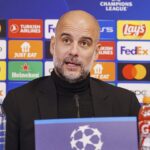

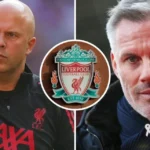

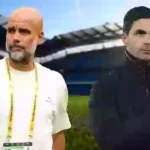

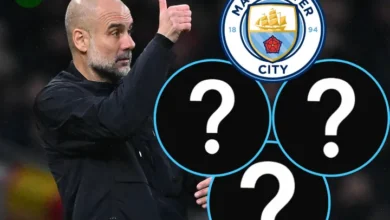
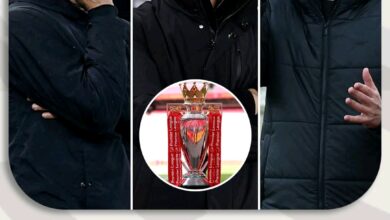
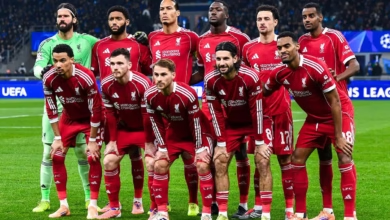

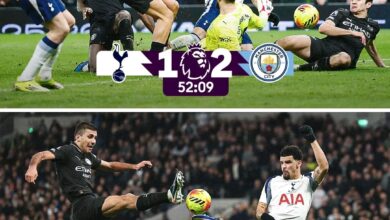
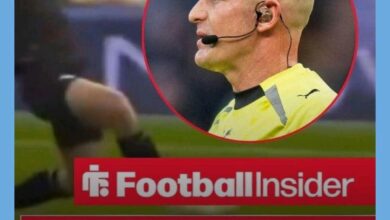
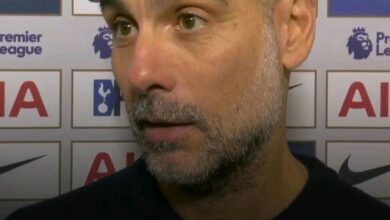
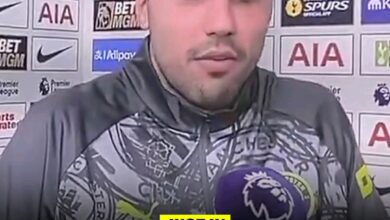
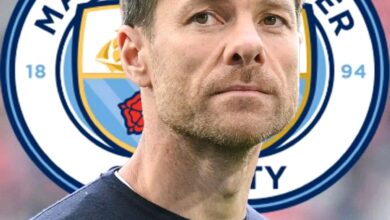
How is that possible